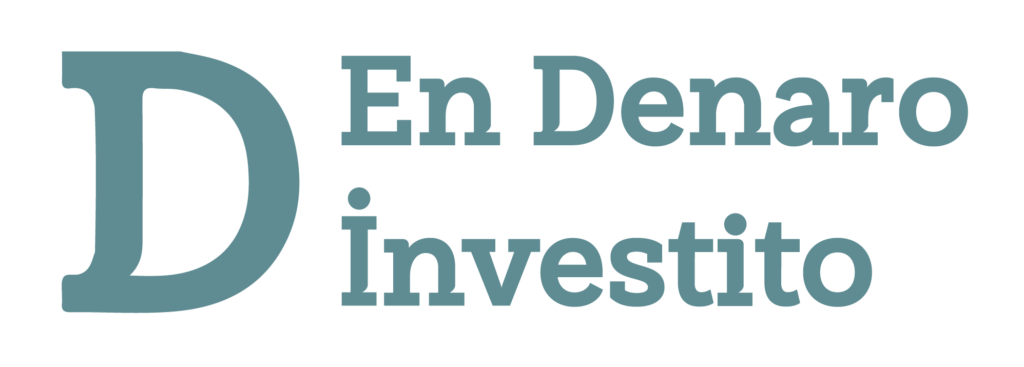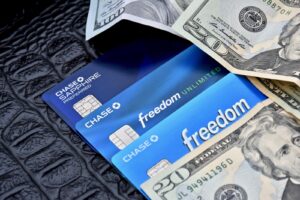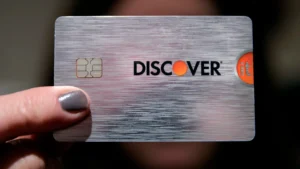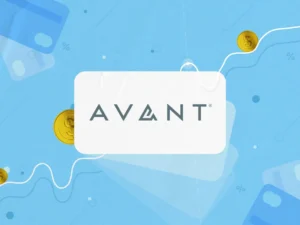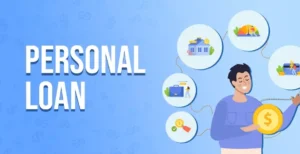When it comes to money decisions, people often weigh personal loans against credit cards. This choice is about finding the best and most affordable way to borrow money for different needs. It’s important to look at the pros and cons of each.
By focusing on interest rates, how long you have to pay back, and credit score needs, we help clarify which option might suit various financial scenarios better.
Understanding Personal Loans and Credit Cards
Understanding personal loans and credit cards is key to making smart financial choices. These tools do different things for your money and credit. Knowing how they work helps you plan your finances better.
Definition and Purpose
Personal loans give you a lump sum from a bank that you pay back in set monthly amounts. Use them for big buys, paying off debts, or to have more cash on hand. Banks check your credit closely and set up a clear payback schedule for personal loans.
Credit cards let you spend up to a certain amount. They’re great for daily buys or managing your cash short-term. How much you can spend depends on your credit health and history.
How They Work
A personal loan gives you money all at once. You then pay it back over time. This makes budgeting easier because you know your payment amount each month.
Credit cards work differently. Each month, you can spend up to your limit and pay some or all of it back. Any money you don’t pay back will have interest. This offers flexibility but watch out! It can lead to debt if not managed well.
| Criteria | Personal Loans | Credit Cards |
|---|---|---|
| Repayment Structure | Fixed monthly installaents | Revolving credit with monthly payments |
| Use Case | Large purchases, debt consolidation | Day-to-day expenses, smaller purchases |
| Credit Management | Structured and stable | Flexible but requires careful monitoring |
It’s crucial to know the differences between these financial tools. Choosing the right one lets you manage your credit better. It helps you match your financial strategy to your needs.
Interest Rates and Fees
It’s important to know how interest rates and fees differ for personal loans and credit cards. Each option has its own costs. These costs affect how much you’ll pay in the long run.
Comparing Personal Loans and Credit Cards
Looking at personal loans and credit cards means checking their finance charges. Personal loans often have set interest rates, making your payments the same each month. Credit cards, however, can have changing rates depending on the market and how much of your credit limit you’re using.
Fixed vs Variable Rates
Personal loans usually come with fixed rates. This means your interest rate won’t change over the loan’s life. It makes planning your finances easier. Credit cards have variable rates that can go up or down, causing your monthly interest costs to be unpredictable.
Understanding APR
The Annual Percentage Rate (APR) is key when comparing credit. It shows the real cost of borrowing by including the interest rate and fees. Personal loans often have a lower APR than credit cards. This is due to their set payback terms and lower rates. Credit cards might have higher APRs because their rates can change and they might have extra fees for actions like cash advances or late payments.
Approval Process and Requirements
Understanding how to get approved for loans or credit cards is essential. Banks and lenders have criteria to see if you qualify. We’ll look at what affects their decision, especially your credit score and if you have a steady income.
Credit Score Considerations
Your credit score is key when lenders decide on your loan. A high score means better chances and terms for you. It shows you’re good at paying back what you owe. A low score, though, can make things harder and more expensive for you. Lenders use this score to figure out how risky it is to lend you money.
Income and Employment Verification
Lenders don’t just look at your credit score; they also check your income and job. They want to know you can pay back the loan. Having a regular income and a solid job history helps your case. To prove this, you might need to show your latest pay slips or tax documents.
Personal Loans for Debt Consolidation
Personal loans are a great way to handle debt management. They help bundle many debts into one, which can lead to lower interest rates. This makes it simpler to pay off what you owe.
By turning many payments into one, life gets less complicated. A personal loan could also boost your credit score by reducing your total debts.
Here’s a table showing the perks of personal loans for debt consolidation:
| Aspect | Benefits |
|---|---|
| Interest Rates | Potentially lower than credit cards |
| Monthly Payments | Streamlined into a single payment |
| Credit Score | Possible improvement by reducing open accounts |
Using personal loans for financial consolidation strategies is a smart move. It aids in better debt management and boosts financial health.
Low Interest Personal Loans: When Are They Available?
Getting low interest personal loans can ease your money worries. But you need to meet certain needs to get good rates. Let’s look at how to be eligible and compare lenders effectively.
Qualifying for Low-Interest Loans
Your credit score matters a lot for low interest rates. Better scores mean lower rates. Lenders also look at your debt and income to see if you can handle more debt. A steady job helps too. Meeting these criteria boosts your chance of a good loan deal.
Comparing Lenders
It’s vital to compare lenders for the best low interest loans. Look beyond rates to fees, terms, and penalties. Use a comparison table to weigh each lender’s offer. This helps in finding the best deal for your needs.
| Lender | Interest rate | Loan Term | Fees |
|---|---|---|---|
| Bank of America | 6.5% | 36 months | No origination fee |
| Chase | 7.2% | 48 months | $50 processing fee |
| Wells Fargo | 5.9% | 24 months | No fee |
Comparing lenders carefully lets you find loans with low interest. This matches your budget and financial plans. Detailed checks ensure you make a smart borrowing choice.
Credit Limits vs Loan Amounts
It’s important to understand the difference between credit card limits and loan amounts. Each has its own effect on your credit score and financial well-being.
Determining Your Needs
When choosing between a credit card or a loan, first figure out what you need. Ask yourself if you need the flexibility of a credit card or the fixed amount of a loan. Loans are great for big, one-time expenses because they have fixed payments.
Credit cards, though, offer flexibility and vary in limit based on your credit history.
Impact on Credit Utilization
Your credit use ratio is key in your credit score. It’s the amount of credit you’re using versus what you have. High ratios can hurt your score. Loans don’t count in this ratio, but maxing out credit cards can increase it.
Understanding how each option affects your credit can guide you to smarter financial choices. It’s about finding the right balance for your financial health.
Repayment Terms and Flexibility
When we talk about personal loans versus credit cards, the terms they come with matter a lot. Knowing the differences helps you plan your payments better. It also helps in managing your debt more smartly.
Personal Loans
Personal loans have set repayment periods. They can last from one year to many years. Since the payments are set each month, budgeting becomes easier. This helps you know when you’ll be done paying off the loan.
Credit Cards
Credit cards, on the other hand, are more flexible. You can choose how much you pay each month. This can be good or bad. It helps when money is tight but can also keep you in debt longer if you’re not careful. Paying more than the minimum is key to getting out of debt faster.
Early Repayment Options
Paying off loans or credit cards early can have great benefits. With personal loans, many lenders let you pay early without extra fees. Still, check first to avoid surprise charges.
With credit cards, paying off the balance early prevents interest charges. This not only saves money but also boosts your credit score. Keeping your credit use low is always a good idea.
Online Personal Loans: Convenience and Speed
The digital world has changed how we borrow money. Online personal loans are now more popular. They are fast and easy to use, meeting the needs of people today.
Application Process
Getting an online personal loan is straightforward. You can apply right from your home. You just need to provide some personal information, your income, and sometimes other documents. This can all be done quickly, unlike the old days.
Instant Approvals
One great thing about online loans is you can get approved fast. Digital lenders use smart systems to review your application quickly. You find out if you’re approved right away, which helps you get the money faster.
When it comes to online loans versus going to a bank, online wins easily:
| Feature | Online Personal Loans | Traditional Banks |
|---|---|---|
| Application Time | Minutes | Hours to Days |
| Approval Time | Instant Loan Approval | Days to Weeks |
| Convenience | High (24/7 Access) | Moderate (Bank Hours) |
Bad Credit Personal Loans: Are They an Option?
Getting a personal loan can be tough if your credit isn’t great. Bad credit personal loans offer help for those with lower credit scores. It’s important to know your options and the risks involved.
Understanding Your Options
If you have bad credit, usual lenders might not lend to you. But, lenders who deal with bad credit can offer loans. They look at more than your credit score, giving you a chance when others won’t.
Risks and Considerations
Bad credit loans can help, but they have higher risks. These loans often have higher interest rates. You might also face strict repayment rules, making careful planning essential.
You need to understand the loan terms fully. Knowing when and how much you’ll pay back is key.
Alternative Solutions
Think about other ways to fix your credit before getting a bad credit loan. Paying bills on time, cutting down debt, and checking your credit score can help. Improving your credit can get you better loan options later.
Fast Personal Loans: When Time is of the Essence
When you’re in a bind, fast personal loans can really help. These loans are great for when you need money quickly. You might not have time to go through slower, traditional loan processes.
Fast personal loans can get you out of tough spots fast. They have speedy approval and quick cash delivery. This means you could get money in a day for things like medical emergencies or urgent home fixes.
But, fast loans mean higher interest rates and shorter payback times. It’s key to think this through. Make sure you can pay it back without messing up your money situation.
Many lenders have fast loans ready for emergencies. They offer different terms to help you out fast. Below, see how some lenders compare with their fast loan options:
| Lender | Approval Time | Interest Rate | Repayment Term |
|---|---|---|---|
| SoFi | Same Day | 7.99% – 22.99% | 2-7 Years |
| LendingClub | 1 Business Day | 6.95% – 35.89% | 3-5 Years |
| Upstart | Next Day | 5.31% – 35.99% | 3-5 Years |
In conclusion, fast personal loans can save the day when you need money quick. By knowing the pros and cons, you can pick the best loan for your situation.
Conclusion
Understanding the difference between personal loans and credit cards is essential for making informed financial decisions. Personal loans have lower interest rates and fixed terms, making them ideal for paying off debts or funding large purchases. Credit cards, on the other hand, offer flexibility but often come with higher interest rates. Evaluate your financial situation, considering rates, terms, and your credit score, to make the best choice and safeguard your financial health.
